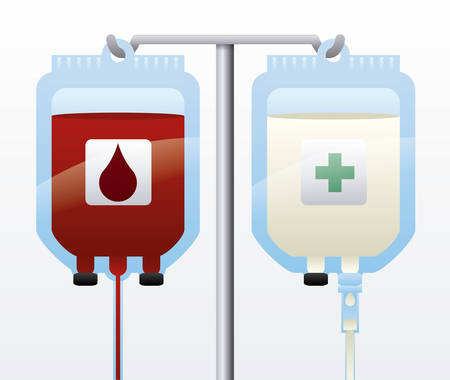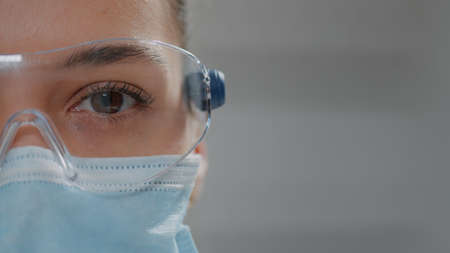Introduction: Setting the Scene
In recent years, aesthetic procedures have become increasingly visible and accepted across the United Kingdom, weaving their way into the fabric of everyday conversation and popular culture. From subtle tweaks to more dramatic transformations, the British public’s curiosity about cosmetic enhancements is at an all-time high. Yet, this shift is not occurring in a vacuum. Celebrities—those ever-present figures on our screens and in our tabloids—play a distinctive role in shaping how we think about beauty and self-improvement. Their openness or discretion about undergoing aesthetic procedures often sets the tone for national debates, influencing both aspirations and anxieties surrounding appearance. As we delve into the contemporary landscape of aesthetic treatments in Britain, it becomes clear that celebrity culture is both a mirror and a catalyst for changing attitudes, guiding public opinion in subtle yet significant ways.
2. British Celebrity Culture: Traditions and Trends
When exploring the impact of British celebrities on public attitudes towards aesthetic procedures, it is essential to first understand the unique fabric of British celebrity culture. Unlike other countries where fame may be fleeting or manufactured, Britains celebrity sphere is deeply rooted in tradition, yet continuously evolving with new trends. The juxtaposition of historical figures such as members of the Royal Family alongside contemporary reality TV stars creates a vibrant tapestry that shapes public perception in distinctive ways.
The Royal Influence: Timeless Elegance
For generations, the Royal Family has epitomised classic British beauty standards—discreet elegance, understated refinement, and natural poise. Their approach to appearance often favours subtlety over overt transformation, subtly encouraging the public to value authenticity and restraint when considering aesthetic enhancements. The Royals rarely speak openly about cosmetic procedures, and their timeless style sets a benchmark for grace and self-assurance.
Reality TV Stars: Modern Aspirations
On the other hand, personalities from shows like “Love Island,” “The Only Way Is Essex,” and “Geordie Shore” have introduced a more open conversation about aesthetic treatments. These celebrities frequently share their experiences with fillers, Botox, and other procedures on social media platforms, making such choices feel accessible and acceptable for everyday Britons. Their candidness contrasts sharply with the reserved nature of traditional celebrities and invites discussion around personal enhancement without judgement.
Comparing Influences: Royal Family vs Reality TV Stars
| Royal Family | Reality TV Stars | |
|---|---|---|
| Approach to Aesthetics | Subtle, natural, rarely discussed openly | Openly shared, often bold transformations |
| Public Perception | Aspiration for timeless elegance and restraint | Aspiration for modern glamour and self-expression |
| Lifestyle Influence | Encourages discretion and confidence in natural beauty | Encourages openness and experimentation with treatments |
| Media Representation | Mainstream news, official events | Social media, reality TV episodes |
Cultural Synthesis: A Changing Narrative
This interplay between tradition and trend is distinctly British. The respectful admiration for the Royals’ composed image coexists with the fascination for reality stars’ honesty about their enhancements. Together, they create an environment where conversations about aesthetic procedures are both reflective of heritage and receptive to innovation—shaping how Britons see themselves and the choices they make regarding their own appearance.

3. Celebrities and Openness About Cosmetic Enhancements
In recent years, an increasing number of British celebrities have chosen to speak candidly about their experiences with aesthetic procedures. This newfound transparency marks a significant shift from the previous era, when such topics were often shrouded in secrecy or dismissed altogether. Stars like Katie Price, Sharon Osbourne, and Gemma Collins have openly discussed their journeys with cosmetic enhancements on national television and across social media platforms, using their own stories to break down stigma and encourage honest dialogue.
Their willingness to share has resonated deeply with the British public, inspiring many to reconsider their own perceptions of beauty and self-care. Rather than hiding behind airbrushed perfection, these celebrities have humanised the conversation, highlighting both the positives and potential pitfalls of aesthetic procedures. For example, Holly Willoughby’s candid discussion about pressure in the entertainment industry struck a chord with viewers who may themselves feel judged by societal standards. Likewise, Simon Cowell’s openness regarding his use of non-invasive treatments has helped normalise these choices for men, broadening the scope of acceptance beyond traditional gender lines.
This cultural shift towards openness is not without its critics; some argue that celebrity confessions might fuel unrealistic expectations or trivialise medical interventions. However, the overarching impact appears to be one of empowerment and education. By demystifying cosmetic enhancements, British celebrities have contributed to a more nuanced public dialogue—one that acknowledges individual choice while encouraging informed decision-making. Ultimately, their honesty is helping to foster a society where conversations about appearance are approached with greater empathy and authenticity.
4. The Role of Media and Social Platforms
In the UK, the media landscape is a powerful force in shaping how we perceive beauty, aesthetic procedures, and self-worth. Whether through the ever-watchful eyes of British tabloids, the candid conversations on popular TV programmes, or the curated perfection seen on Instagram, each platform uniquely amplifies or challenges societal norms related to appearance and self-improvement.
British Tabloids: Shaping Public Perception
Tabloids such as The Sun, Daily Mail, and Mirror have long thrived on celebrity culture. They often highlight dramatic “before-and-after” stories, speculations about who’s had work done, and sometimes expose the pressures faced by celebrities. These headlines can both normalise cosmetic enhancements and fuel scrutiny around those choices. For many Britons, these stories become daily talking points—shaping attitudes subtly but consistently.
TV Programmes: Bringing Procedures into Living Rooms
From reality shows like Love Island to documentaries such as The Truth About Cosmetic Treatments, television opens a window into the world of aesthetic procedures. British TV is known for its directness and wit; presenters often probe deeper into motivations behind treatments, sometimes inviting open debate among viewers. This transparency encourages critical thinking—sometimes reinforcing traditional beauty standards, but also challenging them by spotlighting diversity and authentic experiences.
Instagram Trends: The Visual Influence
Instagram trends play an undeniable role in modern British culture. Influencers and celebrities curate feeds filled with flawless selfies, filter-enhanced stories, and #ad posts promoting everything from skincare to injectables. Yet, there’s also a growing movement towards authenticity—some public figures openly discuss their regrets or embrace unfiltered images. This duality can create both aspiration and reassurance among followers.
The Influence Matrix: Comparing Media Platforms
| Platform | Main Influence Tactic | Impact on Public Attitudes | Cultural Nuance |
|---|---|---|---|
| Tabloids | Sensational Headlines & Speculation | Normalises procedures; increases scrutiny & gossip | Banter-driven, embraces irony & satire |
| TV Programmes | Storytelling & Debate | Humanises experiences; sparks conversation & reflection | Encourages open dialogue with British humour |
| Visual Inspiration & Hashtags | Presents aspirational ideals; fosters both pressure & empowerment | Merges global trends with British individuality |
Navigating Media Messages in Everyday Life
The interplay between these platforms means that as Britons, we are constantly negotiating messages about appearance—sometimes feeling inspired, other times overwhelmed. Personally, I’ve found it invaluable to follow accounts and programmes that promote balance rather than perfection. Ultimately, being aware of how media shapes our perceptions empowers us to make more informed and confident decisions about aesthetic procedures.
5. Changing Public Attitudes and Aspirations
The influence of British celebrities has been instrumental in reshaping the way the public perceives aesthetic procedures. Over recent years, the candid conversations and visible transformations of well-known personalities—from television stars to musicians—have encouraged many in the UK to reconsider their views on cosmetic enhancements. This shift is not simply about normalising treatments; rather, it signals a broader cultural conversation about self-expression, confidence, and the pursuit of personal ideals.
From Stigma to Acceptance
Previously, discussions around aesthetic procedures were often shrouded in secrecy or even shame. However, as British celebrities openly share their journeys—whether through interviews, documentaries, or social media—the stigma begins to dissipate. The likes of television presenters discussing subtle tweaks or actors admitting to non-invasive treatments have helped frame these choices as part of everyday self-care rather than vanity. As a result, there is a marked increase in acceptance across diverse age groups and backgrounds, reflecting a more inclusive attitude towards beauty and wellness in modern Britain.
Debate Fuels Thoughtful Choices
Of course, celebrity influence has also sparked critical debates. While some admire the honesty and vulnerability shown by public figures, others raise concerns about unrealistic expectations or pressure to conform to certain beauty standards. Social commentators and everyday Britons alike question where to draw the line between empowerment and conformity. These debates are healthy—they invite individuals to reflect on their own motivations and encourage clinics to promote responsible messaging around aesthetic procedures.
New Aspirations: Confidence over Perfection
Inspired by celebrities who champion authenticity, there is a noticeable trend towards celebrating ‘tweakments’ that enhance rather than transform. The aspiration has shifted from perfection to confidence—embracing individuality while making thoughtful choices about one’s appearance. As I observe friends, clients, and communities across the UK, it’s clear that celebrity stories continue to shape aspirations not just for how we look, but also for how we feel in our own skin.
6. Conclusion: Reflecting on the British Experience
In summing up the nuanced effects British celebrities have on aesthetic values, societal beauty standards, and individual self-confidence, it becomes clear that their influence is both profound and multi-layered. Within the distinctly British context, where restraint and subtlety often define public discourse, celebrities play a unique role in shaping perceptions around aesthetic procedures. Their choices—whether openly discussed or carefully curated—permeate social consciousness, prompting many to reflect on their own relationship with beauty and self-improvement. While some may argue that this visibility encourages a more open conversation about personal choice and body autonomy, others feel it amplifies pressure to conform to often unattainable ideals. Ultimately, the British experience reflects a delicate balance: admiration for celebrity style is tempered by a cultural inclination towards authenticity and understated elegance. As public figures continue to shape these dialogues, it is essential for individuals to navigate these influences thoughtfully, embracing confidence that comes from genuine self-acceptance rather than simply emulating the stars. In this way, the ongoing interplay between celebrity culture and personal identity continues to evolve, offering both challenges and opportunities for collective growth in how beauty is understood across the UK.


